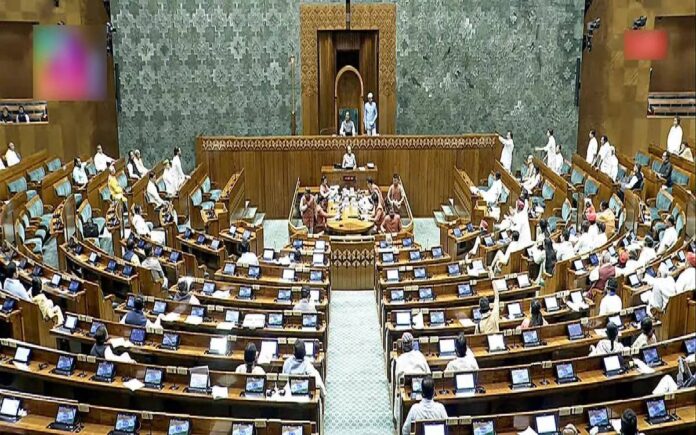New Delhi: The Budget Session 2025 of Parliament concluded successfully on Friday, with both Lok Sabha and Rajya Sabha demonstrating notable productivity—118% and 119% respectively, as reported by the Ministry of Parliamentary Affairs. A total of 16 significant bills were passed during the session, including the impactful Waqf (Amendment) Bill, 2025, which aims to modernize and strengthen the governance of waqf properties.
The session commenced on January 31, 2025, with an inter-session recess from February 13 to March 10, allowing Department-related Standing Committees to review the Demands for Grants of various Ministries and Departments. The first session consisted of 9 sittings, while the second session involved 17 sittings, summing up to 26 sittings in total.
As the opening session of the year, the President addressed both Houses of Parliament jointly under Article 87(1) of the Constitution on January 31. Following this, the Motion of Thanks on the President’s Address was moved in the Lok Sabha by Ramvir Singh Bidhuri and seconded by Ravi Shankar Prasad, involving a debate that lasted over 17 hours, engaging 173 Members. In Rajya Sabha, Kiran Choudhary moved the motion and Neeraj Shekhar seconded it. The motion was discussed for nearly 22 hours with 73 Members participating.
The Union Budget 2025-26 was presented on February 1, with general discussions occupying 16 hours 13 minutes in Lok Sabha and 17 hours 56 minutes in Rajya Sabha. These discussions saw the participation of 169 and 89 Members, respectively.
In the second part of the session, the Demands for Grants for key Ministries such as Railways, Jal Shakti, and Agriculture & Farmers Welfare were extensively debated and voted upon in the Lok Sabha. The Appropriation Bill linked to these demands was introduced and passed on March 21. Several other financial legislations, including:
- Second and Final Batch of Supplementary Demands for Grants for 2024-25,
- Excess Demands for Grants for 2021-22,
- Supplementary Demands for Manipur for 2024-25,
- Demands for Grant on Account for Manipur for 2025-26,
were also approved on March 11.
The Finance Bill, 2025 was passed by the Lok Sabha on March 25, while the Rajya Sabha discussed the working of the Ministries of Education, Railways, Health & Family Welfare, and Home Affairs. The Upper House returned the Appropriation and Finance Bills on March 27, ensuring the timely completion of all financial business before March 31.
In extended sittings held on April 3 and 4, both Houses adopted the Statutory Resolution approving the President’s Proclamation under Article 356(1) regarding the State of Manipur, issued on February 13.
Key Legislation Highlights:
- Waqf (Amendment) Bill, 2025:
Passed following the presentation of the Joint Committee report, the Bill aims to modernize waqf property management, empower stakeholders, and streamline survey, registration, and legal proceedings. It also repeals the Mussalman Wakf Act, 1923. - Disaster Management (Amendment) Bill, 2025:
Introduces clearer roles for disaster management bodies and mandates the creation of a national and state-level disaster database, along with provisions for Urban Disaster Management Authorities and State Disaster Response Forces. - Tribhuvan Sahkari University Bill, 2025:
Facilitates the establishment of “Tribhuvan” Sahkari University, focused on education, training, and research in the cooperative sector, offering a mix of traditional degrees and e-learning courses. - Immigration and Foreigners Bill, 2025:
Simplifies entry and exit protocols for travelers and foreigners, streamlining visa, passport, and registration requirements. - Banking Laws (Amendment) Bill, 2025:
Targets improved governance, transparency, and audit quality in public sector banks while boosting customer convenience and depositor protection.
In total, 11 Bills were introduced during the session (10 in Lok Sabha and 1 in Rajya Sabha), with 16 Bills passed by Lok Sabha and 14 by Rajya Sabha. The legislative output underscores a highly productive and efficient session for Indian democracy.
Union Minister of Parliamentary Affairs and Minority Affairs, Kiren Rijiju, addressed the media at the conclusion of the session, joined by Minister of State for Law and Justice, Arjun Ram Meghwal, and Minister of State for Information and Broadcasting, L. Murugan.



